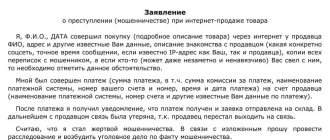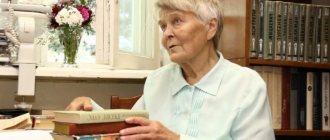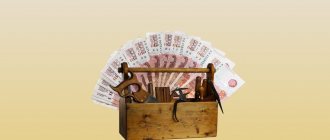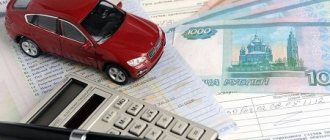Property deduction when selling real estate
If a pensioner decides to sell a residential house or apartment that he owns for less than the minimum period of ownership, he, like all individuals, will have to pay tax to the state on the proceeds of the sale.
Real estate that has been owned for longer than the established minimum period is not subject to tax upon sale.
The minimum maximum period for owning real estate is generally 5 years, and if the real estate was received under a lifelong maintenance agreement with a dependent, privatized, inherited or donated by a close relative - 3 years.
Article 217.1 of the Tax Code of the Russian Federation:
3. For the purposes of this article, the minimum maximum period of ownership of an immovable property is three years for real estate in which at least one of the following conditions is met:
1) the right of ownership to an object of real estate was received by the taxpayer by inheritance or under a gift agreement from an individual recognized as a family member and (or) close relative of this taxpayer in accordance with the Family Code of the Russian Federation;
2) ownership of the real estate property was acquired by the taxpayer as a result of privatization;
3) the right of ownership to an object of real estate was received by the taxpayer - the rent payer as a result of the transfer of property under a lifelong maintenance agreement with dependents.
4. In cases not specified in paragraph 3 of this article, the minimum maximum period of ownership of an immovable property is five years.
As a general rule, the tax base for the sale of real estate that was owned for less than the deadline can be reduced by declaring to the tax office your right to a deduction in the amount of 1 million rubles [clause 1, part 2, art. 220 of the Tax Code of the Russian Federation]. It does not matter whether the pensioner works or does not work, he can take advantage of this deduction.
Example
The pensioner received an apartment under a gift agreement from a close relative in 2021. In 2021, he sold the apartment for 1,400,000 rubles. Now he must pay personal income tax in the amount of 13%, since he owned the apartment for only 2 years. If he declares his right to a deduction of 1 million rubles, the tax base will decrease:
1,400,000 – 1,000,000 = 400,000 rubles.
The state will need to pay:
400,000 * 0.13 = 52,000 rubles.
If you do not use a deduction, the tax will be as follows:
1,400,000 * 0.13 = 182,000 rubles.
How can Ulyanovsk residents get their money back for medicines and treatment?
In fact, the right to compensation for medical expenses is spelled out in two federal laws at once.
Firstly, in Article 219 “Social tax deductions” of the Tax Code of the Russian Federation. All possibilities for obtaining compensation are listed here, and there is also a link to a document approved by Government Decree No. 201 of March 19, 2001, containing a list of medications for which you can count on compensation for the purchase. Secondly, in the Federal Law on compulsory health insurance - provided that the patient has a compulsory medical insurance policy.
However, there are other cases in which you can apply for compensation not only to the Social Insurance Fund and the tax office, but also to other government bodies.
Refund of money through the social insurance service (FSS)
Compensation for medicines is provided for both employed and unemployed people. Moreover, standard and additional support measures are provided. To benefit from compensation, it is sufficient to confirm that the compulsory health insurance contract did not cover all treatment costs. In other words, if the patient took advantage of free medicine, but the medications prescribed by doctors had to be purchased at his own expense. Or if a person was forced to resort to paid services of doctors, however, in this case it will be necessary to prove that free medicine was not able to provide timely and qualified assistance.
You will need to provide your insurance company with the following package of documents: a medical policy, pharmacy receipts, forms for payment and an agreement with a medical institution, prescriptions, copies of pages from a medical book and, of course, a doctor’s conclusion or a certificate from a medical institution in the prescribed form confirming the need for treatment.
Let us note that anyone can return the money, the main thing is to have a compulsory insurance agreement (compulsory medical insurance policy). If a child gets sick, the parents apply for compensation. The period for consideration of the application is 30 days. Then the insurer may ask to open a special bank account to transfer money, although alternative methods of returning funds at the discretion of the insurance company are not excluded by law.
In this way, money can be returned through the fund only in cases where it was spent on medicine or treatment for yourself, your parents, children or spouse.
"Medical" tax deduction
A tax deduction is not compensation from the budget, but money that the state returns from personal income tax paid. The list of medical services according to the Tax Code includes everything that a sick person usually encounters. But provided that the assistance was provided in a medical institution that has a valid license. A deduction can also be obtained for voluntary health insurance if it was paid for independently and not by the employer.
The size of the deduction depends on the cost of treatment: the more spent, the more you get back. However, the maximum cost that is taken into account when calculating the deduction is 120,000 rubles, even if medical expenses exceed a million. Such a medical deduction is due to those who were treated themselves or spent money on medicines for close relatives, regardless of whose name the medical services contract was concluded. It will be possible to return money for medicines if they are on the list approved by Decree of the Government of the Russian Federation dated July 30, 1994 No. 890, as amended on February 14, 2002. It is not difficult to calculate the amount that can be returned through a “medical” deduction, especially since it directly depends on the amount of wages. Let’s say it is 24,000 rubles, which turns out to be 288,000 rubles per year, while 288,000 * 0.13 = 37,440 rubles were paid as tax. If a person spends 60,000 rubles on treatment. The further calculation scheme is as follows: (288000-60000)*0.13=29640 rubles. It turns out that it was necessary to pay 29,640 rubles to the tax office, but in fact 37,440 rubles were paid. So this difference (37440-29640 = 7800 rubles) will return.
At the same time, we should not forget, no matter what the income and expenses for treatment, according to the law, the amount of tax deduction for medical services and expenses for medicines will not exceed 15,600 rubles per year. And one more thing: the deduction can be issued within three years from the date of treatment. That is, in 2018 you can receive a deduction for treatment in 2021, 2021 and 2015, and the date and month do not matter.
You need to collect a package of documents, fill out a 3NDFL declaration and write an application. To avoid difficulties and red tape, you can use the “Taxpayer Personal Account” service on the “State Services” portal, as well as programs for filling out declarations offered on the official website of the tax authority. The application itself can be written at the tax office, the form will be issued on the spot.
About special categories
Special categories entitled by law to receive a refund for medicines or medical services include children under three years of age, pensioners and disabled people.
For children under three years of age, there is a list of free medications for which you can also get your money back. In each region, a decision is made annually on the formation of a local list, based on budgetary capabilities. Therefore, when a child is prescribed a medicine, it is worth asking the doctor whether it is included in the regional list and at which pharmacy it can be obtained. The pharmacist will dispense the medicine if it is available or refuse to dispense it. In this case, you need to obtain either a separate receipt indicating the absence of the required medicine in the drug fund for children, or a stamped note on the prescription. After this, you can contact the social service or the health insurance fund with a request for reimbursement of expenses. The parent also has the right to apply for a “medical” deduction from the tax office.
The easiest way is to return money for medicine to pensioners. For partial compensation for medications with receipts and a prescription, a pensioner can contact the Pension Fund of his area. The form is issued at the branch itself. It’s enough to just write: “I ask you to return the money for the medicines according to the attached documents.”
People with disabilities can expect either 50% reimbursement for medications or full reimbursement. They need to contact the insurance company.
Social assistance at local level
In addition to the return of money for medicines and treatment prescribed in federal legislation, additional support measures, so-called targeted assistance, are also in effect in Ulyanovsk and the region. So, for example, if the money spent on health improvement exceeds the financial capabilities of the family and someone even had to take out a loan, it is considered that the person is in a difficult life situation. In this case, you can contact the social service of your area with a request for reimbursement of costs by providing prescriptions, a doctor’s referral, an agreement on paid services, and so on. Each specific case is considered separately and provides for payment of up to 2 million rubles. Financing in this case is possible both from the city budget and from the regional one. If the amount is small, say 50,000 rubles, and the municipality at a given time has the opportunity to compensate it without delay, then receiving it will take about 30 days: the decision is made by the Commission for considering issues of providing social support measures to citizens who find themselves in difficult life situations, at the city administration. If there is a need for regional funding, the time frame for providing compensation may be extended. This year alone, 2,613 thousand residents received financial assistance from the regional budget - in the amount of 78 million rubles.
Property deduction when buying a home
A pensioner purchasing an apartment, residential building or land plot intended for individual housing construction can receive a property deduction, but only under certain conditions.
The bottom line is that you can return money from the state budget (i.e., get a tax deduction for the purchase of real estate) only if you pay something to the state budget. If a pensioner pays personal income tax, he has something to return.
The maximum deduction when buying a home is 2 million rubles, i.e. you can return a maximum of 260 thousand (13% of the limit). If the pensioner is married, and the conditions listed below are met for both spouses, the husband and wife will be able to return a maximum of 260 thousand each, i.e. 520 thousand rubles per family.
Pensioner working
In this case, everything is simple - the deduction can be obtained on a general basis, since the pensioner is officially employed, and the employer monthly transfers personal income tax from the employee’s income to the state budget. We wrote in detail about how to get a tax deduction for the purchase of a home.
The pensioner has additional income
For example, income from the rental of housing or other property, income from the sale of property, an additional non-state pension, income from an individual entrepreneur, if the pensioner is one, can be additional income.
Personal income tax is paid on all of the above (in the case of individual entrepreneurship, personal income tax is transferred to the budget if a general tax regime is chosen), which means there is a basis for receiving a deduction.
The pensioner does not work and has no additional income
If a pensioner receives only a state pension, does not work and does not receive any additional income, then he does not pay personal income tax. However, such a pensioner can still receive a deduction when purchasing real estate.
The legislation gives non-working pensioners the right to receive a tax deduction (carry over the balance of the deduction) for the 3 years preceding the year of purchase of real estate. Accordingly, if a pensioner has received official income and paid personal income tax in the last 3 years, he will be able to return the money in the amount of the deduction due to him.
Another option for receiving a deduction is for a legal spouse who is officially employed or has additional income to receive it. It doesn’t matter who exactly bought the property, the main thing is that the marriage is officially registered, and the spouse pays personal income tax (or paid in the last 3 years, if he is now retired).
Is it possible to receive payments under a compulsory medical insurance policy?
Theoretically, you can receive money from the insurance company only if it is necessary to compensate for the cost of treatment or research.
We are talking about compensation only for those tests and procedures that should be carried out under the compulsory medical insurance system - be free for the insured.
Such compensation is possible if the patient is forced to pay for treatment or medications on his own, if it was not possible to receive help in a free medical institution.
The reason may be, for example, the lack of a specialist or equipment.
A referral for such treatment or tests must be completed using Form No. 057/U-04 “Referral for hospitalization, rehabilitation treatment, examination, consultation.”
It will not be possible to claim compensation if:
- you performed tests or paid for treatment at the verbal request or advice of the attending physician;
- if you received a referral on a regular piece of paper, even with the stamp of the clinic and doctor.
After the study or treatment is completed, it is necessary to save the referral, receipts and agreement for the provision of services. This is necessary to confirm expenses and establish the amount of compensation.
After this, you need to write an application to the insurance company in the prescribed form and attach documents to it.
There are no other options for receiving money from an insurance company under a compulsory medical insurance policy, and although the theoretical possibility of receiving compensation for the funds spent exists, the author is not aware of a single case of its practical implementation.
Children under 3 years of age are entitled by law to free medications. How to get them -
It is possible to obtain a tax deduction for treatment.
This is beneficial if the treatment amount is large. The tax deduction is 13% of the amount spent. But these funds are returned provided that the citizen previously paid this amount in the form of income tax.
The tax deduction has no connection with compulsory medical insurance funds.
If you sold and bought real estate in the same year
If a retiree sells one property that he owned for less than the required minimum period and purchases another in the same calendar year, he can offset the tax.
Here, whether a pensioner works or does not work (whether he pays personal income tax on additional income) only affects the deduction when buying a home, we wrote about this above. The deduction upon sale remains in any case.
Example
A pensioner sold an apartment in February 2021 for 3,000,000 rubles. He owned the apartment for 1 year, so he must pay tax on the income from the sale. In July 2021, he bought a residential building for 1,200,000 rubles. He retired in 2019; before that he was officially employed.
The tax offset in this case will look like this: the initial tax base, equal to 3 million rubles, is reduced by 1 million rubles (deduction for the sale of real estate that was owned for less than the deadline) and by another 1,200,000 rubles (deduction for the purchase of housing) . We get:
3,000,000 - 1,000,000 - 1,200,000 = 800,000 rubles.
The tax that will need to be paid, taking into account all deductions:
800,000 * 0.13 = 104,000 rubles.
Deduction for treatment
A pensioner who pays personal income tax to the budget (if he works or receives additional income) can independently receive a deduction for the treatment he received in paid clinics. He can do this within 3 years from the year in which he paid for the treatment.
A non-working pensioner who has no income other than a state pension cannot receive a deduction for paid treatment. But since you can get a deduction not only for your own treatment, but also for the treatment of your parents, husband/wife and children under 18 years of age, then for a non-working pensioner, children or a working spouse can receive a deduction if they pay for medical services.
The tax deduction limit for treatment is 120 thousand rubles, so the maximum you can return is: 120,000 * 0.13 = 15,600 rubles. The balance of the deduction cannot be carried over to the next year.











